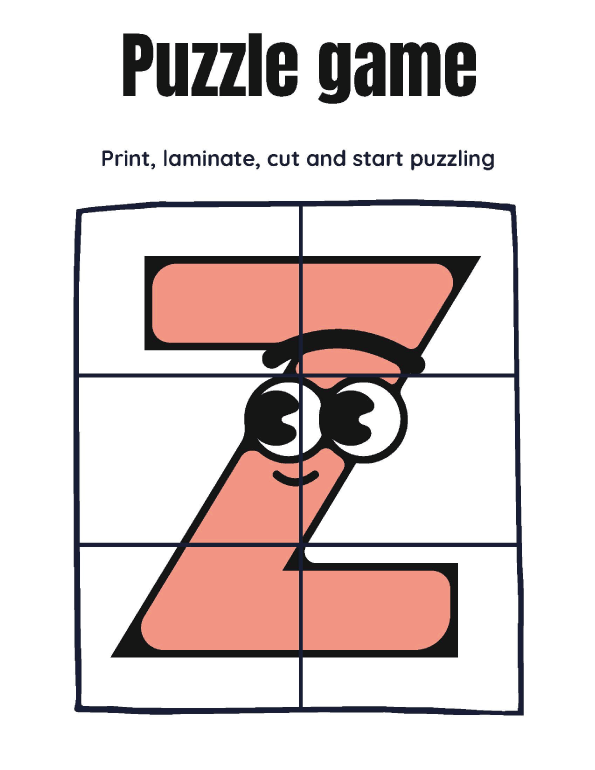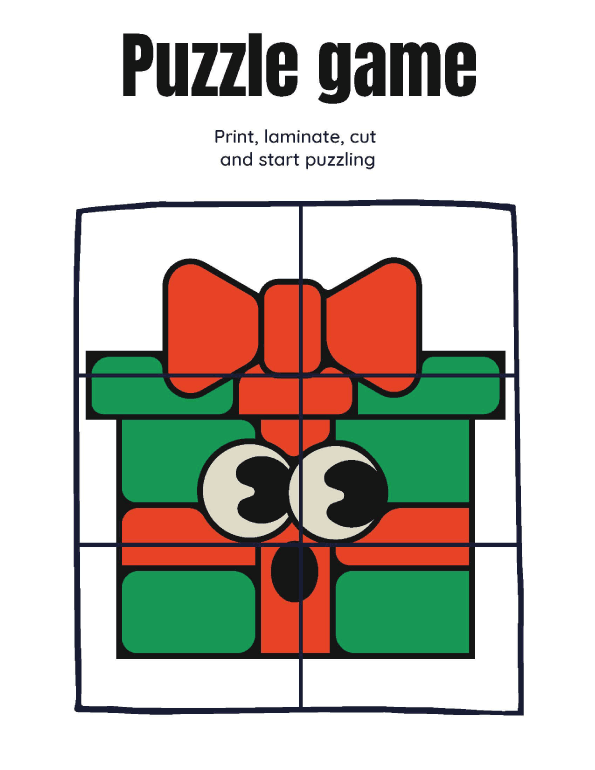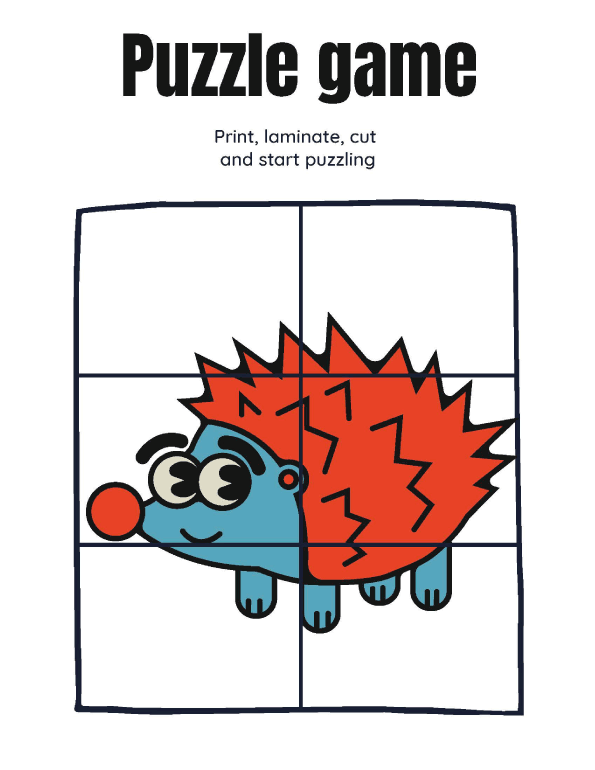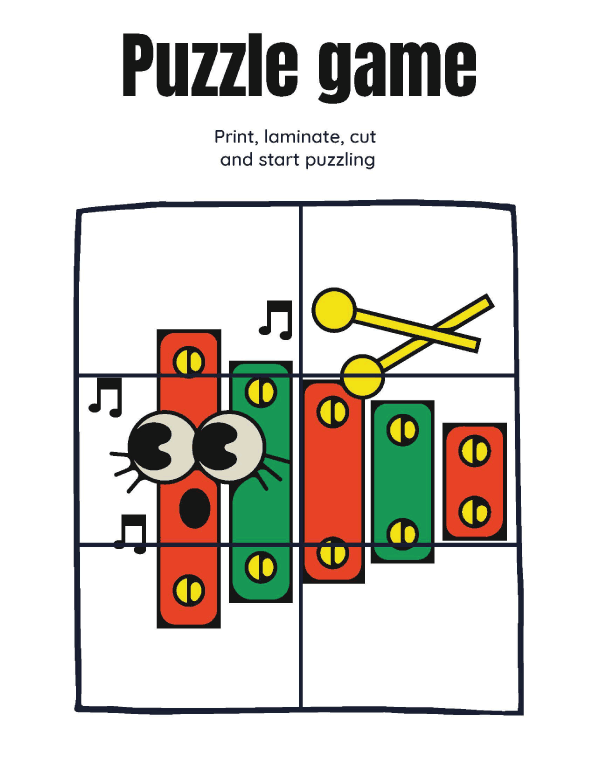Table of contents
Daily puzzles have become one of the most enjoyable ways for kids to learn while playing. They combine entertainment with education, turning screen time—or even paper time—into a creative and rewarding experience. Parents and teachers love how these small but mighty challenges keep children thinking, engaged, and smiling every day.
In a world where children are surrounded by technology and constant distractions, daily puzzles offer a calm yet stimulating activity that builds focus, memory, and critical thinking. Whether they’re solving word searches at breakfast or tackling a Sudoku before bed, puzzles make learning feel like an adventure rather than a task.
This article explores how daily puzzles benefit kids’ mental growth, creativity, and confidence while providing ideas, examples, and tips for making them a fun part of everyday learning.

The Power of Daily Puzzles in Child Development
From preschoolers to preteens, children are naturally curious and love to solve problems. Daily puzzles feed that curiosity by giving them new challenges to explore every single day. But these puzzles do more than entertain—they actually help shape developing brains in powerful ways.
1. Boosting Critical Thinking Skills
Every time kids tackle a crossword or logic riddle, they’re learning how to think critically. Daily puzzles encourage children to look at problems from different angles, test solutions, and learn through trial and error. This process helps them develop analytical skills that transfer directly into reading comprehension, math, and science.
2. Strengthening Memory and Concentration
Completing daily puzzles requires kids to recall facts, remember patterns, and stay focused. Over time, this repeated exercise strengthens both short-term and long-term memory. For example, remembering word lists in a word search or following number patterns in Sudoku trains the brain to hold and retrieve information efficiently.
3. Encouraging Perseverance and Patience
Not every puzzle is easy—and that’s a good thing! Kids learn that persistence pays off. Daily puzzles teach patience, resilience, and the satisfaction that comes with finishing something challenging. This lesson often extends beyond the puzzle table to homework and other responsibilities.
4. Building Confidence
There’s a special kind of joy that comes from completing a puzzle. For kids, that feeling translates to confidence in their own abilities. When they master today’s puzzle, they can’t wait to see what tomorrow brings.

Types of Daily Puzzles That Kids Love
The beauty of daily puzzles lies in their variety. Different puzzle types appeal to different interests and learning styles, meaning there’s always something new to try. Here are some of the most popular categories that kids (and even adults) can enjoy.
1. Word Puzzles
Word puzzles help expand vocabulary and improve spelling. They’re a perfect choice for kids who love stories, reading, or language games.
Examples include:
- Crosswords – Perfect for learning new words and definitions.
- Word Searches – Great for pattern recognition and letter identification.
- Scrambled Words (Anagrams) – Challenge kids to rearrange letters and form real words.
- Word Ladders – Encourage logical connections between similar words.
2. Number and Math Puzzles
For young math enthusiasts—or kids who need a little extra practice—daily puzzles involving numbers make arithmetic fun.
Examples include:
- Sudoku – Enhances logic, sequencing, and spatial reasoning.
- Math Mazes – Combine problem-solving and arithmetic to reach a target number.
- Pattern Games – Teach early math skills like sequencing, shapes, and counting.
3. Logic Puzzles
Logic-based daily puzzles challenge kids to use deduction and reasoning.
Examples include:
- Matching Games – Encourage sorting and categorizing.
- Riddles – Inspire creative and abstract thinking.
- “Who Am I?” or “What Am I?” Puzzles – Strengthen inference and reading comprehension skills.
4. Visual and Spatial Puzzles
Some kids are visual learners who understand the world best through shapes, colors, and patterns.
Examples include:
- Jigsaw Puzzles – Build fine motor skills, spatial awareness, and attention to detail.
- Spot the Difference – Develops observation skills and visual memory.
- Tangrams – Teach geometry concepts through creative design.

Educational Benefits of Daily Puzzles
The long-term educational benefits of daily puzzles are substantial. What seems like playtime is actually deep cognitive training happening beneath the surface.
Language and Literacy Skills
Word-based daily puzzles enhance reading, spelling, and vocabulary. Kids who regularly play with letters and words tend to become more confident readers and writers. It’s an easy way to make language practice part of daily life.
Math and Logical Reasoning
When kids work with patterns, sequences, and numbers through daily puzzles, they strengthen their mathematical reasoning. Even children who struggle with math often find these puzzles less intimidating and more enjoyable than traditional worksheets.
Problem-Solving and Creativity
Daily puzzles stimulate both sides of the brain—logic and creativity. They encourage kids to look for alternative solutions and to use imagination when faced with new challenges.
Emotional and Social Growth
Puzzles teach teamwork and patience when done together. Families can solve a crossword as a group or compete to finish a jigsaw first. This creates bonding time and helps children learn cooperation and communication.

Incorporating Daily Puzzles into Everyday Life
Making daily puzzles a regular habit doesn’t have to be complicated. In fact, it can be one of the easiest ways to add learning into a child’s routine.
1. Start the Morning with a Puzzle
Kick off the day with a fun challenge! A short crossword or brain teaser can energize the brain before school. Kids who start the day with daily puzzles often show improved concentration during classes.
2. Turn Screen Time into Learning Time
Many educational websites and apps now offer interactive daily puzzles. Parents can set screen limits while still allowing kids to explore puzzles that promote learning.
3. Create a Puzzle Corner at Home
Dedicate a small space where kids can solve puzzles, draw, and think creatively. Keep pencils, erasers, and a few printed daily puzzles available so they can grab one anytime.
4. Make It a Family Tradition
Family puzzle time—perhaps after dinner or before bedtime—turns daily puzzles into shared fun. Everyone can take turns choosing the puzzle of the day.
5. Reward Consistency
Create a puzzle calendar where kids can mark off each day they complete their daily puzzles. Offer small rewards or certificates for completing a week or month’s worth of puzzles.

Educational Puzzles That Make Learning Fun for Children
Fun Ways to Create Your Own Daily Puzzles
You don’t always have to rely on pre-made materials. Creating custom daily puzzles is a great way to tailor them to your child’s interests or current lessons.
Ideas include:
- Make word searches using your child’s favorite animals, colors, or school subjects.
- Write riddles about everyday objects around the house.
- Draw simple mazes on paper for younger children to navigate.
- Create “puzzle of the day” cards to surprise your child at breakfast.
Homemade daily puzzles also provide bonding time and help reinforce topics learned in school in a fun and personalized way.
Digital vs. Printable Daily Puzzles
In the modern age, daily puzzles come in two main forms: digital and printable. Both have unique benefits, and balancing the two can create the best learning experience.
Digital Daily Puzzles
- Easily accessible on tablets and smartphones.
- Offer interactive hints, animations, and progress tracking.
- Encourage independence as kids can play anytime, anywhere.
Printable Daily Puzzles
- Encourage handwriting and fine motor practice.
- Provide a break from screens, reducing digital fatigue.
- Easy to include in classrooms or family game nights.
A combination of both keeps things fresh and ensures that learning stays dynamic and exciting.
How Parents and Teachers Can Support Puzzle Learning
Parents and educators play a key role in helping kids get the most from daily puzzles. Here are a few strategies to make puzzle-solving a positive part of a child’s growth:
- Offer Guidance, Not Answers – Help children think through problems instead of giving direct solutions.
- Celebrate Effort – Praise persistence and creativity, even when the puzzle isn’t finished.
- Adjust Difficulty – Choose puzzles that are challenging but not frustrating. Gradual difficulty builds confidence.
- Integrate with Learning Goals – Teachers can use daily puzzles to reinforce classroom lessons in spelling, math, or science.
- Encourage Discussion – Talk about strategies, favorite puzzles, and what kids learned from each experience.

Top Online Resources for Daily Puzzles for Kids
Here are some trusted platforms that provide daily puzzles suitable for children of different ages:
- National Geographic Kids – Daily quizzes and logic puzzles related to animals and geography.
- FunBrain.com – Offers free educational games and puzzles designed for elementary learners.
- Highlights Kids – Home of kid-friendly daily puzzles like hidden pictures and riddles.
- The Kids’ Crossword Club – Provides printable and interactive word puzzles for all ages.
- Puzzle Playground by Education.com – Customizable daily puzzles that reinforce school topics.
These platforms are not only fun but also aligned with educational standards, making them safe and effective learning tools.
Conclusion:
In a busy, digital-first world, daily puzzles offer a timeless and joyful way for children to learn, grow, and relax. They teach essential academic skills, nurture problem-solving abilities, and build habits of persistence and curiosity. Most importantly, they make learning fun—something every child deserves.
Whether it’s solving a crossword at breakfast, tackling a Sudoku in the car, or completing a family jigsaw before bed, daily puzzle can transform ordinary moments into opportunities for discovery. So grab a pencil, open an app, or print a page—there’s a puzzle waiting to make today just a little bit brighter and a lot more fun.
🎯 Turn free time into a mental adventure by printing out our ready-made puzzle set. (40 Pages) 🎯